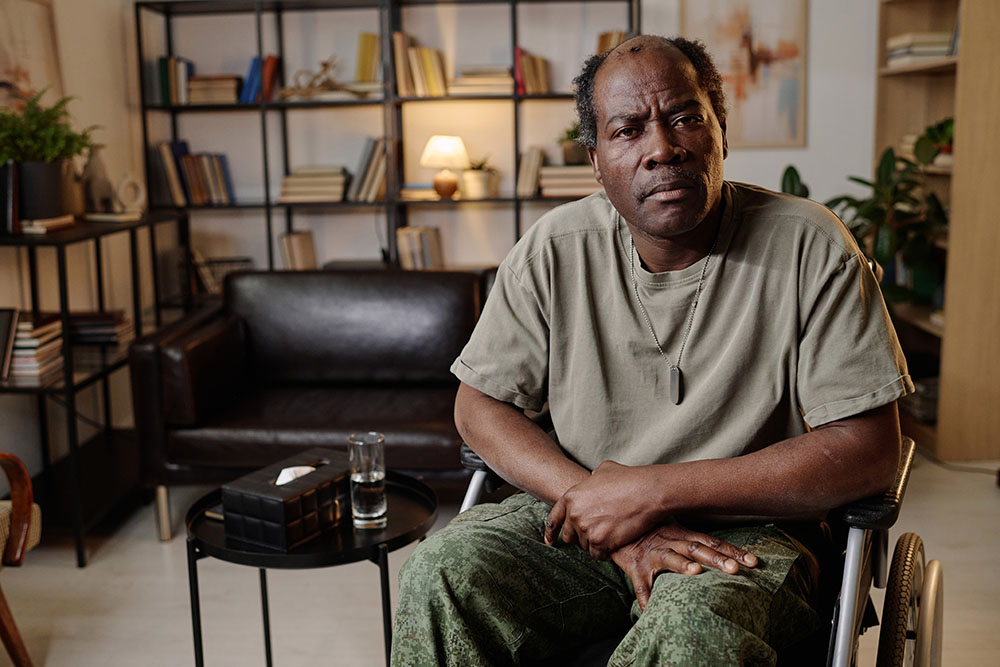Post-Traumatic Stress Disorder (PTSD) is often associated with younger populations, particularly veterans and individuals who have experienced acute trauma. However, seniors can also suffer from PTSD, sometimes from events that occurred many years earlier. Diagnosing PTSD in seniors is critical for providing appropriate care and improving their quality of life. This article explores the signs and symptoms of PTSD in seniors, the process for screening and diagnosis, and primary care management strategies.
Signs and Symptoms in Seniors
Identifying PTSD in seniors can be challenging because symptoms may overlap with other age-related conditions such as dementia, depression, and anxiety. Key signs and symptoms to look for include:
- Intrusive Memories: Seniors may experience recurring, distressing memories of traumatic events, nightmares, or flashbacks.
- Avoidance Behavior: They might avoid places, activities, or people that remind them of the trauma.
- Negative Changes in Thinking and Mood: This can manifest as persistent negative emotions, feelings of hopelessness, detachment from family and friends, and a loss of interest in previously enjoyed activities.
- Changes in Physical and Emotional Reactions: Hyperarousal symptoms like being easily startled, having difficulty sleeping, or experiencing outbursts of anger are common.
Recognizing these symptoms requires sensitivity and an understanding of the individual’s history and personality changes over time.
Screening and Diagnosing PTSD
Diagnosing PTSD in seniors involves a comprehensive assessment that includes both self-reported symptoms and clinical evaluation. Some of the steps involved in the process include:
- Initial Screening: Use validated screening tools such as the PTSD Checklist (PCL-5) or the Geriatric Depression Scale (GDS), which can help identify symptoms related to PTSD.
- Clinical Interview: A detailed clinical interview should follow, exploring the individual’s traumatic experiences, symptom onset, and impact on daily functioning. It’s essential to create a safe and supportive environment during this process.
- Collateral Information: Gather information from family members or caregivers who can provide insights into the senior’s behavioral changes over time.
- Differential Diagnosis: Rule out other conditions with similar symptoms, such as dementia or depression, which can co-occur with PTSD.
Primary Care Management
Effective management of PTSD in seniors requires a multi-faceted approach tailored to the individual’s needs. Primary care providers play a pivotal role in this process:
- Psychotherapy – Evidence-based therapies, such as Cognitive Behavioral Therapy (CBT) and Eye Movement Desensitization and Reprocessing (EMDR), are effective in treating PTSD. Seniors may benefit from modifications to these therapies to address age-related issues.
- Medications – Pharmacological treatment can include antidepressants like SSRIs or SNRIs, which help alleviate symptoms of depression and anxiety associated with PTSD. It’s important to monitor for side effects and interactions with other medications.
- Establishing Trust – Some seniors will be hesitant to share their traumas and emotions. Establishing trust with them during the treatment is key to ensure a positive outcome.
- Holistic Approaches – Incorporating holistic treatments such as mindfulness, yoga, and other stress-reduction techniques can enhance overall well-being.
- Regular Follow-Up – Continuous monitoring and follow-up appointments are essential to assess treatment efficacy and make necessary adjustments.
Diagnosing and managing PTSD in seniors requires a nuanced approach that considers the unique challenges of aging. Early identification and appropriate treatment are key to helping seniors lead healthier, more fulfilling lives.
With offices in Miami, Miramar, Fort Lauderdale, Pompano Beach, and West Palm Beach, Primary Medical Care Center is a leader in full-risk primary care, distinguished by its innovative philosophy and unique physician-led culture that delivers coordinated, world-class primary care to the most vulnerable populations, particularly moderate- to low-income seniors with complicated chronic diseases.
